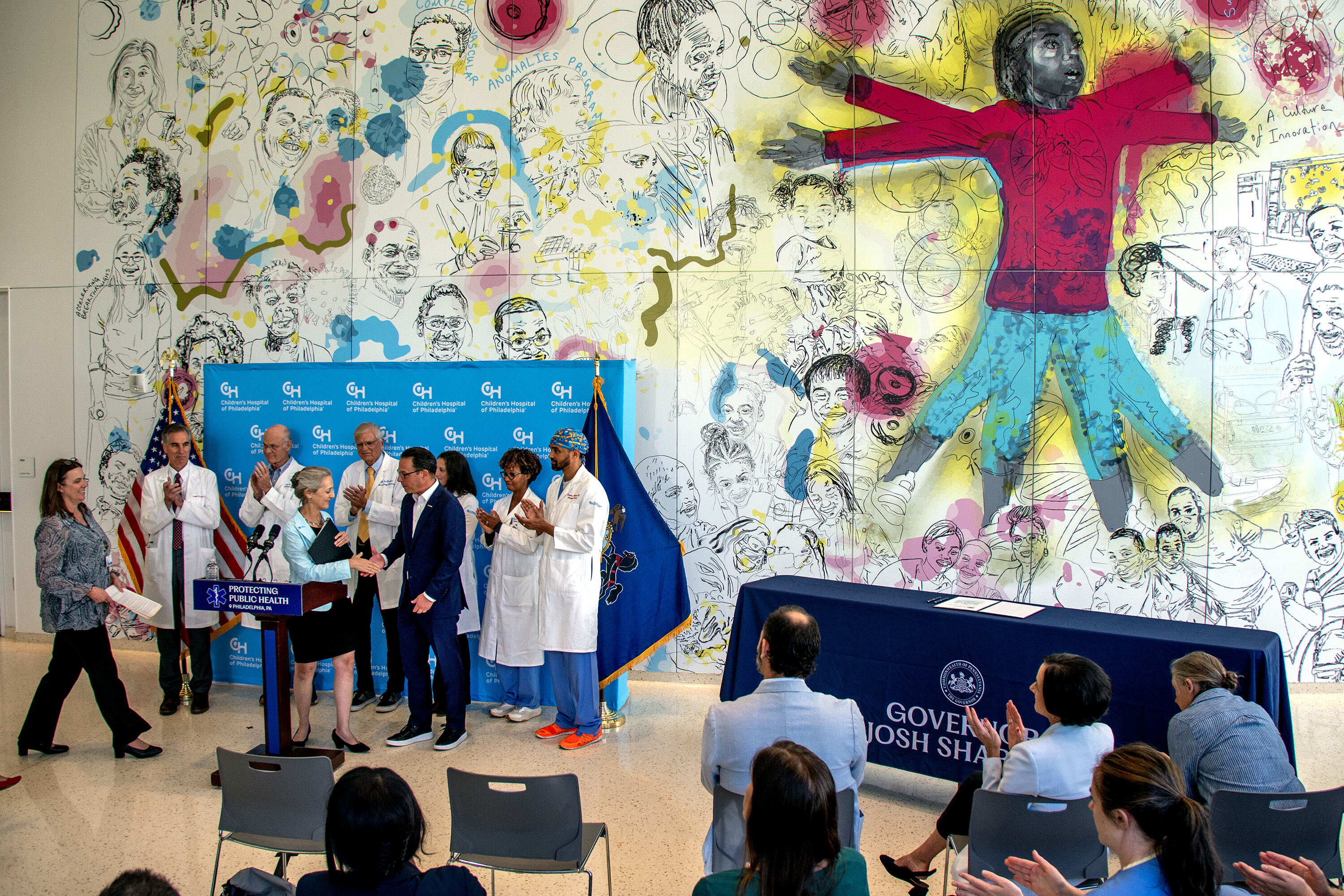
Pennsylvania Takes Action to Ensure Vaccine Access
Governor Josh Shapiro signed an executive order on Wednesday aimed at safeguarding Pennsylvanians' access to vaccines, responding to recent federal policy changes that have raised concerns about the availability of this year's COVID-19 shot and the future of childhood immunizations. The order was announced at the Children's Hospital of Philadelphia, where Shapiro emphasized the importance of ensuring all children have access to essential vaccinations.
The new Pennsylvania-based program mirrors the federal Vaccines for Children (VFC) program, which provides free vaccines to children who are eligible through Medicaid, are uninsured, or underinsured. This initiative is designed to ensure that even if federal policies change, children in Pennsylvania will still have access to recommended vaccines.
Insurance Coverage and Policy Changes
In addition to the state program, the executive order mandates that health insurers cover vaccines approved by the Food and Drug Administration (FDA) and endorsed by leading medical groups without imposing cost-sharing or other barriers. Shapiro noted that private insurers have already committed to covering these vaccines "at least through the end of 2026."
Shapiro criticized recent vaccine-related actions by the Trump administration, stating that the state must take proactive steps to protect public health when federal guidance is lacking. He emphasized that Pennsylvanians should have the freedom to make informed healthcare decisions, and that insurance companies must follow suit.
Other Democratic-led states have also taken similar measures. New Jersey Governor Phil Murphy recently signed an executive order allowing anyone over six months of age to receive the COVID-19 vaccine, while New York Governor Kathy Hochul declared a statewide disaster emergency due to federal actions related to vaccine access, enabling pharmacists to prescribe the vaccine themselves.
Federal Actions and Confusion
Recent federal actions have led to confusion and delays in vaccine distribution. Under the leadership of Health Secretary Robert F. Kennedy Jr., the FDA limited the use of COVID-19 booster shots to people 65 or older and those at high risk. It also revoked the emergency use authorization for Pfizer's vaccine in healthy children under five, reversing previous recommendations that all Americans 6 months and older should receive the annual shot.
Kennedy replaced all 17 members of the CDC's vaccine advisory body with individuals who have expressed skepticism about vaccines. The reconstituted group did not meet until mid-September, leaving pharmacists without clear guidance on vaccine recommendations.
This lack of clarity resulted in many people being turned away from pharmacies when trying to get their boosters. In response, Pennsylvania's regulatory body for pharmacists recently voted to allow pharmacists to follow the recommendations of professional medical societies, such as the American College of Obstetricians and Gynecologists (ACOG), the American Academy of Pediatrics (AAP), and the American Academy of Family Physicians (AAFP).
Protecting Public Health and the Economy
Shapiro's executive order aims to shield the state from potential shifts in federal vaccine policy. For example, it ensures that children eligible for the federal VFC program can still access recommended vaccines even if ACIP removes them from its schedule.
The order also directs all state agencies to align their policies with recommendations from leading medical experts. Pennsylvania's Department of State, Department of Education, and Department of Aging will be tasked with communicating updated vaccine guidance to schools, senior centers, and professional licensing boards.
"We want Pennsylvanians to have reliable evidence-based information, regardless of what happens at the federal level," Shapiro said. He also announced the creation of an online portal to provide resources and information about vaccines.
A vaccine education work group consisting of doctors, parents, pharmacists, public health experts, and community representatives will develop strategies for communicating vaccine information to the public.
Economic and Health Impacts
Shapiro highlighted the economic significance of the vaccine industry in Pennsylvania, noting that more than half of all vaccines in the U.S. are manufactured in the state. The industry generates $4.74 billion for the state's economy and provides 4,700 jobs.
"Our health, our safety, and our economy all depend on people having access to vaccines," he said.
Regional Collaboration and Public Health Concerns
In response to federal changes, Pennsylvania joined a regional health coalition called the Northeast Public Health Collaborative, which includes seven states and New York City. The coalition aims to protect residents' health by providing science-based evidence and ensuring equitable access to vaccines and health services.
Health Secretary Debra Bogen noted that misinformation about vaccine safety has led to more parents delaying or forgoing vaccines for their children. This has resulted in a 3% decline over the last five years in the measles, mumps, and rubella vaccination rate for children entering kindergarten in the state.
Diana Montoya-Williams, a neonatologist at CHOP, emphasized the importance of vaccines, recalling how she had to place infants on breathing machines due to preventable diseases. She expressed her anticipation for giving her own children their first set of two-month childhood vaccines.